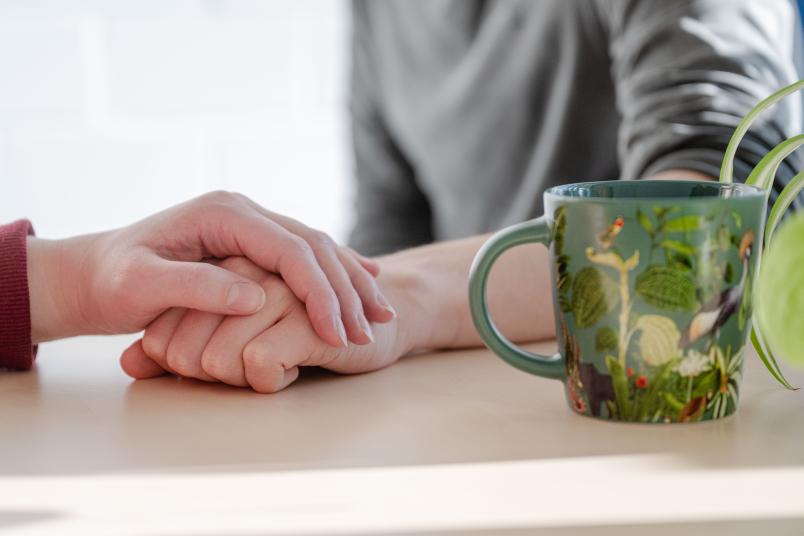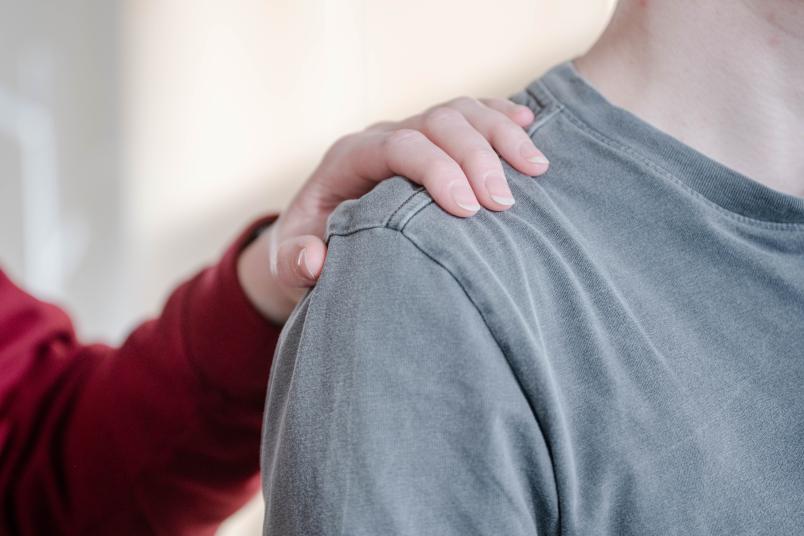Psychology
When and How Does Touch Make a Difference?
A hug can have a beneficial effect. Even when it comes from a robot.
Touch can do a lot of good – so far, so good. But to what extent do humans benefit from it? How much touch is allowed? Who should touch and where? When we experience physical contact – does it even have to be with another human? A research team from Bochum, Duisburg-Essen and Amsterdam analyzed over 130 international studies with around 10,000 participants to answer these questions. The researchers proved that what touch really does is alleviate pain, depression and anxiety. While frequent touching has a particularly beneficial effect, there’s indication that the touch doesn’t have to last long. The effect is enhanced by contact of skin on skin. Most notably, touch administered by objects such as social robots, heavy blankets and body pillows also showed a demonstrable effect. The team published their findings in the journal Nature Human Behavior from April, 8, 2024.
With infants, touch should be administered by the parents
“We were aware of the importance of touch as a health intervention,” says Dr. Julian Packheiser from the Institute of Cognitive Neuroscience at Ruhr University Bochum. “But despite many studies, it remained unclear how to use it optimally, what effects can be expected specifically and what the influencing factors are.” Following the comprehensive meta-analysis, the team was able to answer many of these questions.
Both adults and infants benefit from touch. “In the case of infants, it’s important that it is the parents who administer the touch; their touch is more effective than that of a care professional,” points out Dr. Helena Hartmann from the University of Duisburg-Essen. “In adults, however, we found there was no difference between people our volunteers were familiar with and a nursing professional.” The greatest effect of touch on adults was demonstrated by the many studies conducted on the mental state of the participants. According to these studies, pain, depression and anxiety decreased significantly. Touch also had a positive effect on cardiovascular factors such as blood pressure and heart rate, but the effect was less pronounced.
Even a brief hug makes a difference
A longer duration of touch, which averaged 20 minutes in the studies, did not significantly affect the outcome. “It’s not true that the longer the touch, the better,” summarizes Julian Packheiser. Shorter but more frequent touching proved to be more beneficial. “It doesn’t have to be a long expensive massage,” says the researcher. “Even a short hug has a positive impact.” The researchers were surprised by the positive effect of touch administered by objects. Social robots, stuffed animals, body pillows and other such items performed less well than humans when it came to mental health factors, but still showed a measurable positive effect.
“This led us to the conclusion that consensual touch improves the well-being of patients in clinical scenarios and healthy people alike,” says Julian Packheiser. “So, if you feel like hugging family or friends – don’t hold back, as long as the other person gives their consent.”
Still many questions left unanswered
For the researchers, this raises many more questions about the potential of touch interventions for public health. For example, it remained unclear in the studies which quality the touch had for the people experiencing it. Another unresolved question is whether affective touch has a different effect than instrumental touch, such as hair washing by a hairdresser or exams performed by a physician. The role of touching animals has also not yet been sufficiently researched, nor have cultural differences between different communities.


